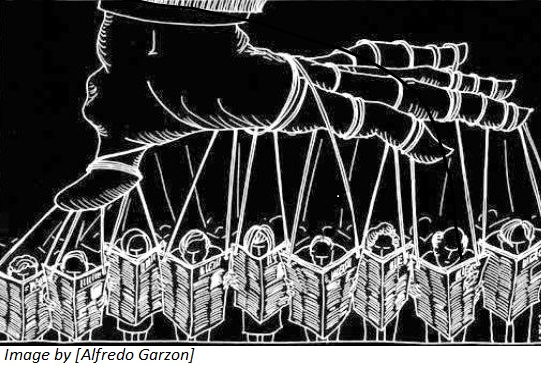
One of the forms of totalitarian control is the control over discursive spaces and sites of knowledge production.
The totality of control is achieved through the tools of surveillance, systematic management, and manipulation of academic spaces, constructed within the logics of state and market power.
The market reigns precisely through the arms of the state that give legitimacy to forms of resource extraction in the hands of private capital. The state, thus reorganized as a capitalist tool, legitimizes various forms of control through explicit communicative tools such as policies as well as implicit tools that set the expectations of communication.
One such tool of totalitarian control exerted over knowledge production is research calibration. Research calibration works as a method for aligning academic work with the agendas of the state, setting implicitly the limit imposed on what can be studied, how studies are conducted, and the ways in which studies are circulated.
For instance, “closed door meetings” are legitimized as informal processes through which academics can contribute to policy and lend their work to social change. However, the very formulation of “closed door policies” is situated within the ambits of power, legitimizing various forms of state control as the necessary tools for managing the generation and reproduction of knowledge. The closing of the door on the findings and how they are shared offers the state the tool for deploying knowledge to fulfil its agenda of totalitarian control. This is further complicated when public funds are deployed toward the funding of the academic work.
Knowledge thus formulated achieves the totality of control, albeit under the guise of social change.
